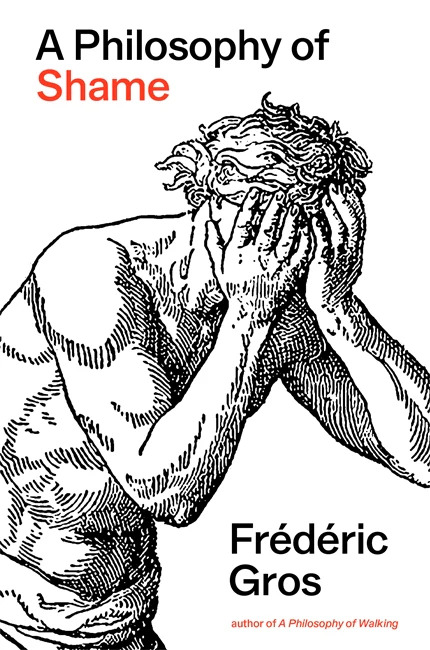
A Philosophy of Shame by Frédéric Gros
October 7, 2025
A Philosophy of Shame is among a certain type of book which I find entirely disorienting and a bit disingenuous, but enjoyable nonetheless. The price of publishing interesting, in depth essays, with a chorus of the author's favorite references humming along, seems to consist of promising something revolutionary out of it, and gesturing broadly, if disjointedly, at the backdrop of global unrest. If the revolutionary angle of it can be set aside, Gros leads the reader through a concise but rich ethnography of shame, examining shame as structural to honor-based societies, the fragmentation and individualization of shame in neoliberal societies, shame online, and shame as a misplaced artifact of terrible violence.
Gros spends a chapter exploring shame through a psychoanalytic lens. He distinguishes between types of shame—Shame, it seems, is something only extant in the presence of some other. But is solitude truly a refuge from shame? Gros muddies the distinction between self and other in the formation of the "lofty moral eye looking down on us even in our private moments," speaking to the palimpsestic nature of personhood, the ghosts of others which compose the self. Shame arises at the meeting point between internal representations of self and the gaze of the other. As Gros puts it "what we call solitude is a very relative concept. I am never as alone as all that, and others are not necessarily external to me."
.png)